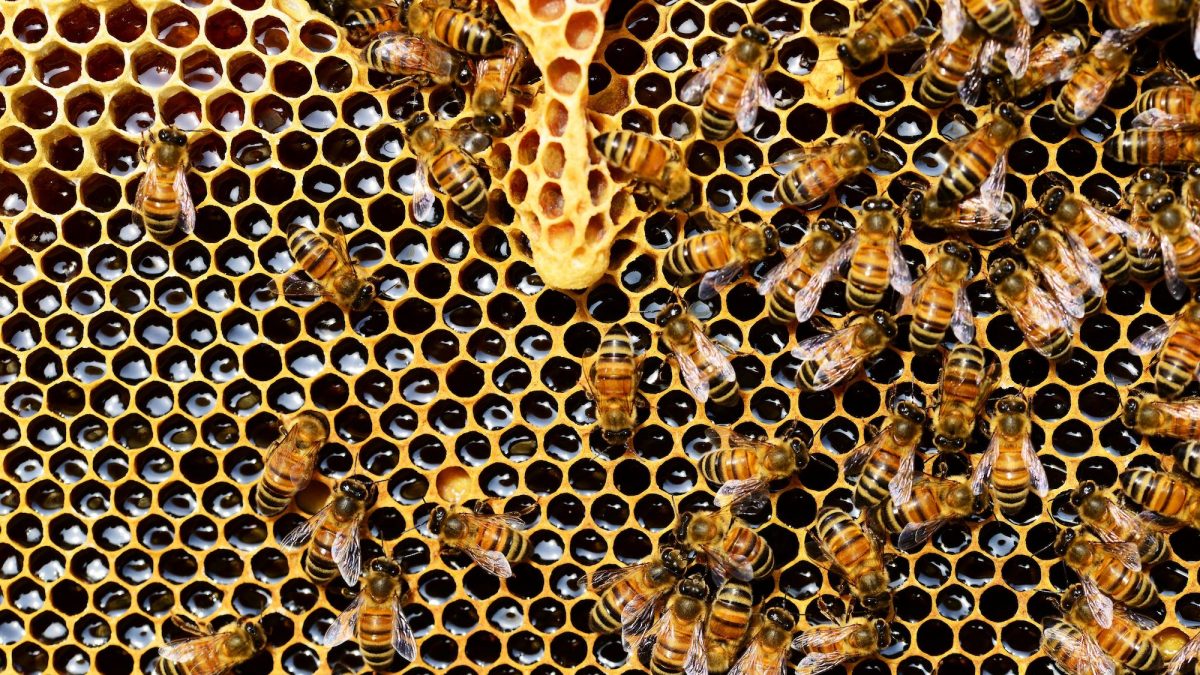Beekeeping
{A Written Practice}
Beekeeping
Is a virtuous act.
Beekeeping is one of the coolest things you can possibly do. This is because, first of all, bees are absolutely ecologically necessary, and they are under great stress at this time in history. Bees are pollinators–they are the brilliant insects that pollinate flowers, so that they can develop into food, the fruits and vegetables that we need to eat. They pollinate trees, flowers, fruits, veggies. We could not survive without pollinators, because plants could not convert their flowers into fruit. So for this very practical, and even self-interested reason, learning to keep bees is a very very good idea.
Beyond this, bees themselves are remarkably interesting and beautiful creatures. Perhaps it is their almost mammalian fuzziness, or some deep ancestral awareness that they make honey, or the fact that they dance their locations, or that they are matrilineal, with societies governed by queens...for some reason, bees inhabit a unique place in our collective and ancestral psyches. People who tend them are able to communicate with them, and if you spend any time at all watching them closely, you are likely to become fascinated by their behavior.
Among other phenomena, bees sometimes exhibit swarming behaviors when they need to move a colony, or when a colony splits. Occasionally you will find an entire colony of bees swarming, gathered into a living pulsing mound on something, or wrapped around something. I once found a swarm of bees the size of a basketball on a branch. A living, pulsing, aggregation of bees swarming, transitioning to a new home. Master Gardener Arthur Baker, who teaches on this learning platform, once encountered such a swarm, and as he approached it the pitch of its buzzing began to grow higher and louder until it became apparent to him they were warning him to stay back.
Bees do not sting randomly. Like most animals, they are very sensitive to energy, and can tell if someone (a person) is in an atmosphere of tranquil awareness (their connection system is online) or agitated (they are having a threat response). Children tend to get stung because they smash a bee inadvertently, adults because they are not calm. So bees, like most wild creatures, are good feedback mechanisms to see how you are doing. A honeybee has a barbed stinger that detaches from its body and stay in you, so it dies when it stings you. For this reason, it will only do this when it is absolutely necessary. Wasps and yellowjackets, by contrast, do not die on stinging, and are therefore perhaps less conservative about poking something.
And then of course, if you keep bees, there is HONEY! Honey is a truly astonishing substance. Medical grade manuka honey (harvested from bees that are pollinated tea plants) is a highly effective topical antibiotic and wound dressing. If you eat honey from bees in a particular place, it will inoculate you against an allergic reaction to beestings. But of course, neither of these are the primary reasons people eat honey. People eat honey because it is delicious. Keep bees = have delicious honey...
Related Practices:
Relating to other arts of food gathering, Bow Hunting, Count Your Chickens, Foraging. Related also to Tracking and the Arts of Life, as an ancestral awareness practice.Photography: Cottonbro | Licensed from Pexels.com, used with permission.


